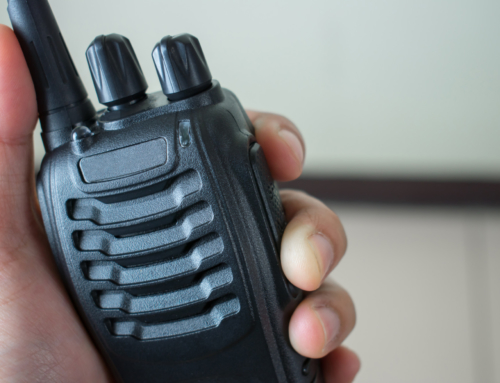The Basics of Radio Network Security
In an increasingly digital world, radio communication networks remain vital for a range of industries, including public safety, forestry, emergency services, and logistics. Yet, despite their critical role, these networks are not immune to threats. Radio network security refers to the suite of practices, technologies, and protocols used to protect these communication systems from unauthorized access, data breaches, and malicious interference.
Unlike standard internet-connected systems, radio networks often operate in specialized environments with unique vulnerabilities. These include open transmission frequencies, aging infrastructure, and gaps in encryption. If left unaddressed, attackers can exploit these weaknesses to intercept sensitive information, disrupt operations, or even take control of communication flows.
Whether you’re deploying two-way radios for a fire department, outfitting a police squad with mobile units, or using portable radio repeaters in rugged terrain, ensuring your system’s security is paramount.
Key Security Strategies
Security is not a one-size-fits-all endeavor. It involves a combination of technological safeguards, human protocols, and systematic risk evaluations. Understanding and implementing a layered security strategy can significantly reduce vulnerabilities and ensure resilient communication capabilities.
Encryption and Secure Protocols
Encryption is your first and most critical line of defense. It transforms data into unreadable formats unless a specific decryption key is applied. Modern radio networks should employ Advanced Encryption Standard (AES) encryption, particularly AES-256, which offers a strong layer of protection against brute-force attacks.
Many commercial and government-grade radios come equipped with built-in encryption features. For example, King Radios’ BKR5000 and BKR9000 radios support multiple encryption algorithms, ensuring secure, interoperable communication across various agencies and departments.
Equally important are secure communication protocols, such as:
- P25 (Project 25): Common in public safety applications, P25 allows secure digital radio communication with interoperability across manufacturers.
- DMR (Digital Mobile Radio): Suitable for both commercial and industrial applications, DMR supports TDMA (Time Division Multiple Access), providing encryption and efficient bandwidth usage.
- Analog Scrambling: Though not as secure as digital protocols, analog radios can use basic voice inversion or frequency hopping to obscure transmissions. While this may deter casual listeners, it should not be relied upon for sensitive communications.
Risk Assessment Techniques
A robust security plan must begin with a thorough risk assessment. This involves identifying potential vulnerabilities and assessing the impact of various threat scenarios. Consider the following components:
- Asset Inventory: Identify all hardware, software, and communication endpoints in your network.
- Threat Modeling: Consider internal and external threats, including unauthorized access, jamming, or spoofing attacks.
- Impact Analysis: Determine the potential operational and financial consequences of a security breach.
- Control Evaluation: Assess existing security measures and identify gaps that need attention.
A comprehensive risk assessment not only helps prioritize your security investments but also ensures compliance with regulatory standards, particularly in public safety and emergency service sectors.
Comparing Vendor Security Solutions
Selecting the right radio vendor can make or break your security strategy. Not all radios are created equal—some are designed for basic communication, while others cater to high-security environments.
When evaluating vendors, consider the following security-related features:
- Encryption Support: Do they offer AES 256-bit encryption? Is it FIPS 140-2 certified?
- Interoperability: Can their radios communicate securely with systems from other manufacturers?
- Firmware Updates: How frequently does the vendor issue security patches?
- Authentication Mechanisms: Do the radios support user authentication or device-based access control?
- Redundancy and Failover: How does the vendor handle communication continuity in the event of equipment failure or attacks?
King Radios, for example, provides a full line of secure communication products, including the BK Radio KNG M150 mobile, BKR5000 portables, and BKR9000 units. These radios come with built-in AES encryption and comply with both military and public safety standards, making them ideal for mission-critical deployments.
Implementing Effective Security Measures
Now that we’ve covered the key strategies, let’s discuss how to implement them in a practical, scalable manner.
Conduct Security Audits Regularly
Security isn’t a set-it-and-forget-it process. Regular audits should be conducted to review current policies, test for vulnerabilities, and verify compliance. These audits should include physical inspections of radio equipment, software version checks, and penetration testing for network endpoints.
Segment Your Network
Just as in IT, network segmentation in radio systems limits the spread of potential breaches. Different departments or functions can be assigned specific frequency bands or talk groups. This approach ensures that even if one segment is compromised, the rest of the network remains secure.
Train Personnel in Security Best Practices
The best encryption and security measures mean little if your personnel aren’t trained to use them correctly. Conduct regular training on topics such as:
- Secure radio usage
- Password and key management
- Recognizing social engineering attacks
- Responding to suspicious activity
Leverage Access Control and Authentication
Access control mechanisms should be employed to restrict who can transmit or receive on certain channels. Modern radios often support Radio ID authentication or Over-the-Air Rekeying (OTAR) for dynamic, secure access management.
Authentication ensures that only authorized personnel can access critical communication lines, preventing eavesdropping or impersonation.
Employ Redundancy and Emergency Protocols
No system is invulnerable. Having backup radios, portable repeaters, and predefined emergency protocols ensures communication continuity during a security event or system failure. RCA analog and DMR portable radios from King Radios are ideal for such scenarios, offering quick deployment and flexible configurations.
Partnering With the Right Provider
Security is a shared responsibility between your organization and your radio equipment provider. Working with a vendor who prioritizes security and offers comprehensive solutions is essential for long-term operational resilience.
At King Radios, we pride ourselves on delivering cutting-edge communication solutions tailored to your needs. Whether you’re in forestry, public safety, emergency response, or private industry, we offer a diverse range of secure radios, including:
- Portables: Like the BKR5000, ideal for rugged, mobile environments.
- Mobiles: Including the BK Radio KNG M150, designed for vehicular installation.
- Base Stations: Fixed-location communication hubs for central coordination.
- Accessories: From antennas and speaker mics to batteries and chargers, everything you need to build a secure communication ecosystem.
Our products also cater to specialized needs such as Wildland Fire, Police, and Fire Department radios. We stock a full range of portable radio repeaters, DMR radios, and analog units, including RCA models known for their reliability and performance.
Final Thoughts: Invest in Your Network’s Future
Securing your radio network is no longer optional—it’s a fundamental requirement for operational integrity and mission success. By implementing the right encryption standards, systematically assessing risks, and choosing a trusted vendor, you can safeguard your communication channels from evolving threats.
As a leader in secure communication systems, King Radios is here to help. Our team of experts can guide you through the process of selecting, implementing, and maintaining a secure radio network tailored to your industry and operational needs.
Ready to Secure Your Network?
Explore our wide selection of radios, accessories, and security-focused solutions. Whether you’re upgrading an existing system or building a new one from the ground up, we’ve got you covered.
Don’t compromise on security. Choose King Radios for reliability, resilience, and peace of mind.







Leave A Comment
You must be logged in to post a comment.